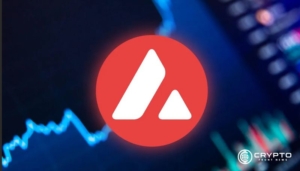- BNB Chain validators propose cutting gas from 0.1 to 0.05 Gwei and shortening block intervals, enhancing trading and network accessibility.
- Past fee reductions lowered transaction costs 75% and increased daily transactions 140% to over 12 million, confirming that low fees drive activity.
- A long-term goal targets $0.001 per transaction while maintaining staking APY above 0.5%, ensuring sustainable rewards and network competitiveness.
BNB Chain is considering major adjustments to improve performance and accessibility. Validators propose lowering gas fees from 0.1 to 0.05 Gwei. They also aim to shorten block intervals from 750ms to 450ms.
Gas Fees and Transaction Growth
BNB Chain validators argue that gas fees influence where traders and developers engage. Lower fees encourage liquidity and market activity. In a tweet, BNB Chain stated, “Gas fees matter. They decide where traders build, where liquidity flows, and where innovation happens.”
Historical data support such variations. In April 2024, the gas charges were decreased to 1 Gwei instead of 3 Gwei, and the median charges dropped to $0.01 instead of $0.04. Trailing-day transactions increased by 140%, surpassing 12 million. Fees declined again in May 2025, reaching 0.1 Gwei, increasing trader activity even more.
The proposed 0.05 Gwei fee level would reduce transaction costs to roughly $0.005. This makes BNB Chain competitive with other low-fee networks, including Solana and Base. Trading activity is increasingly dominant, with swaps now representing 67% of all transactions.
Network Performance and Capacity
BNB Chain’s infrastructure supports higher activity. The network currently operates below 30% capacity, allowing room for increased transaction volumes. Validators also confirm that the chain can handle three times the current state data.
Block interval acceleration from 750ms to 450ms is intended to improve throughput. Faster blocks reduce delays, benefiting traders and automated market makers. This aligns with the chain’s focus on accessibility and performance.
Validators maintain that risks like failed transactions or infrastructure strain remain minimal. The network’s design ensures stable staking rewards, even with increased transaction volumes. Higher activity helps keep staking APY above 0.5%, sustaining validator incentives.
Long-Term Gas Fee Strategy
BNB Chain is introducing a guiding principle for future operations. As long as staking APY stays above 0.5%, the chain should aim for the lowest possible gas fees. This principle balances growth with validator rewards and network sustainability.
The long-term goal targets transaction costs around $0.001. This would represent over a 90% reduction compared to previous levels. It positions BNB Chain alongside the most competitive networks for low-cost transactions.
The proposal reflects a community-led approach. Validators and users are expected to shape the chain’s direction. BNB Chain emphasizes that these changes are designed to maintain competitiveness and support continued growth in trading and development activity.






